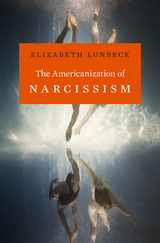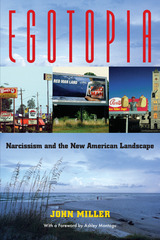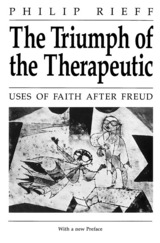
American social critics in the 1970s, convinced that their nation was in decline, turned to psychoanalysis for answers and seized on narcissism as the sickness of the age. Books indicting Americans as greedy, shallow, and self-indulgent appeared, none more influential than Christopher Lasch’s famous 1978 jeremiad The Culture of Narcissism. This line of critique reached a crescendo the following year in Jimmy Carter’s “malaise speech” and has endured to this day.
But as Elizabeth Lunbeck reveals, the American critics missed altogether the breakthrough in psychoanalytic thinking that was championing narcissism’s positive aspects. Psychoanalysts had clashed over narcissism from the moment Freud introduced it in 1914, and they had long been split on its defining aspects: How much self-love, self-esteem, and self-indulgence was normal and desirable? While Freud’s orthodox followers sided with asceticism, analytic dissenters argued for gratification. Fifty years later, the Viennese émigré Heinz Kohut led a psychoanalytic revolution centered on a “normal narcissism” that he claimed was the wellspring of human ambition, creativity, and empathy. But critics saw only pathology in narcissism. The result was the loss of a vital way to understand ourselves, our needs, and our desires.
Narcissism’s rich and complex history is also the history of the shifting fortunes and powerful influence of psychoanalysis in American thought and culture. Telling this story, The Americanization of Narcissism ultimately opens a new view on the central questions faced by the self struggling amid the tumultuous crosscurrents of modernity.

“Kohut has done for narcissism what the novelist Charles Dickens did for poverty in the nineteenth century. Everyone always knew that both existed and were a problem. . . . The undoubted originality is to have put it together in a form which carries appeal to action.”—International Journal of Psychoanalysis

Egotopia explains why individual political and economic interests have eclipsed aesthetic considerations in the rampant billboards, malls, and urban sprawl of the New American Landscape
Egotopia begins where other critiques of the American landscape end: identifying the physical ugliness that defines and homogenizes America's cities, suburbs, and countryside. Believing that prevailing assessments of the American landscape are inadequate and injudicious, John Miller calls into question the conventional wisdom of environmentalists, urban planners,and architects alike. In this precedent-shattering examination of what he sees as the ugliness that is the American consumer society, Miller contends that our aesthetic condition can be fully understood only by explorers of the metaphoric environment.Metaphorically, the ugliness of America's great suburban sprawl is the physical manifestation of our increasing narcissism- our egotopia. The ubiquity of psychotherapy as a medium promoting self-indulgence has deified private man as it has demonized public man. The New American Landscape, Miller argues, is no longer the physical manifestation of public and communal values. Instead it has become a projection of private fantasies and narcissistic self-indulgence. Individual interests and private passions can no longer tolerate, nor even recognize, aesthetic concerns in such a landscape dedicated to uncompromising notions of utility.

Because "the other," or the object, is constructed, Rupprecht finds in narcissism the possibility of rewriting notions of identity. She then pursues this possibility through modern literary texts in which narcissism acts as a structuring principle—works by the expressionist poet Henriette Hardenberg, the American avant-garde novelist Djuna Barnes, and the surrealist writer Unica Zürn—reading each within the critical framework of the evolution of the idea of narcissism in psychoanalytic theory. All written by women, these works also raise questions of gender and sexuality. Moreover, because each of these authors belonged to or was influenced by a particular literary movement, Rupprecht's analysis advances our understanding of the poetics of these movements and of the movement of modernism itself. Underlying all is a deep engagement with psychoanalytic theory. Drawing on Freud, his contemporaries and rivals, Jacques Lacan, Melanie Klein, and many other theorists, Rupprecht interrogates preconceived notions of identity and subjectivity through her readings of the "transgressive potential" of narcissism as it is enacted in the texts under study. Bringing the works of literary modernism and psychoanalysis together in an innovative and provocative way, her book succeeds in enhancing our sense of both, and in clarifying the complex role of narcissism in our cultural narrative.

"A triumphantly successful exploration of certain key themes in cultural life. Rieff's incidental remarks are not only illuminating in themselves; they suggest whole new areas of inquiry."—Alasdair MacIntyre, Guardian
READERS
Browse our collection.
PUBLISHERS
See BiblioVault's publisher services.
STUDENT SERVICES
Files for college accessibility offices.
UChicago Accessibility Resources
home | accessibility | search | about | contact us
BiblioVault ® 2001 - 2024
The University of Chicago Press









